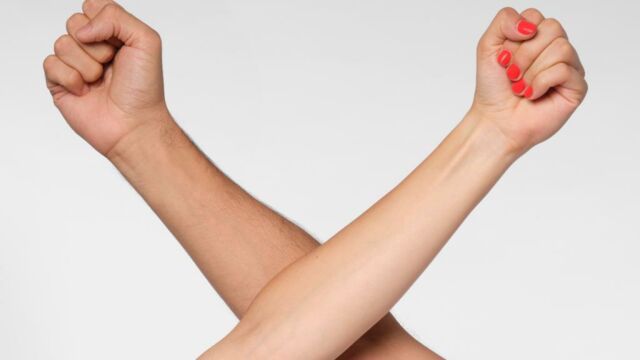From confidence to fear, from happiness to excitement, your body can unconsciously express all these emotions through its language. Body language can reveal a lot about you, even if you are not aware of it. This language consists of hand gestures, facial expressions and other corporal movements.
Discover our latest podcast
If you often cross your arms around your chest during a conversation, it can indicate that you are someone shy or introverted, or don’t want to open up to the persons in front of you. This may affect you and others around you in different ways. However, there are ways around this and we may even master our body language and use it in our best interest. But first, let’s see what each arm crossing tries to depict.
Crossing Arms Behind the Head

Generally speaking, crossing our arms means we are trying to protect ourselves from others. However, this is not always the case. Crossing your arms around your head may be a sign of narcissism and self-righteousness. This body language can portray you as arrogant and not open to others’ opinions. If you ever see yourself doing this, just try to keep your arms in front of you in a neutral position.
Dad posture

Try to imagine how elderly men walk, or dads when they are at the airport, you know what I'm talking about. Arms crossed behind back and front side exposed. If you tend to cross your arms behind your back, it may mean that you're uncomfortable with confrontation.You may be someone who prefers to avoid conflict and keep the peace.
Crossed in Front of the Body: Anxious or Defensiveness

When someone crosses their arms in front of their body, it can be a sign that they are feeling anxious or defensive. This body language is often seen in people who are trying to protect themselves from something (or someone) they feel threatened by. It can also be a way of shielding oneself from emotional hurt. If you see someone crossing their arms, it might be a good idea to ask if they're okay and see if there's anything you can do to help them feel more comfortable.
If you find yourself crossing your arms frequently, it may be worth considering why. Are you feeling particularly anxious or stressed in certain situations? Or do you tend to cross your arms when you're around certain people? Once you identify the triggers for your arm-crossing behaviour, you can start to work on changing it, or, well, owning it.
Overall, try to keep an open posture with your arms by your sides or in front of you. This will make you appear more approachable and receptive to others.
Read more:
⋙ This is what the shape of your forehead says about your personality
⋙ Myers-Briggs personality types explained: What does it say about you?















